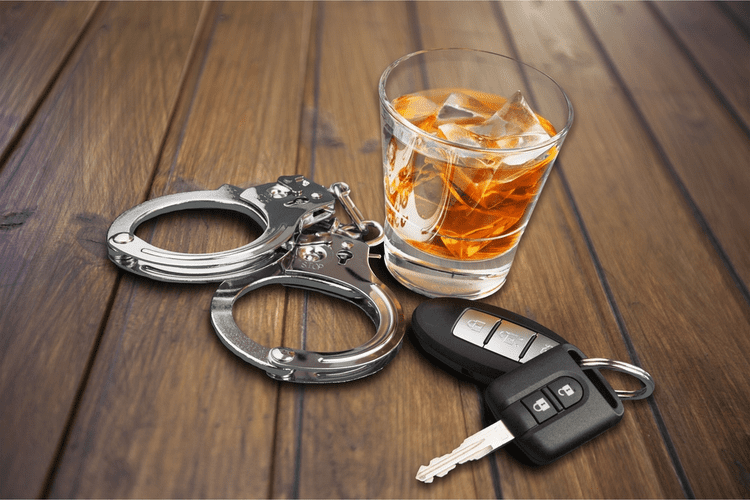Drug Abuse Recovery: Maintaining Hope and Health
Families can develop awareness of a loved one’s emotional, environmental, and social triggers of substance use and manage those. Studies show that families that participate in treatment programs increase the likelihood of a loved one staying in treatment and maintaining gains. As with most other chronic diseases, such as diabetes, asthma, or heart disease, treatment for drug addiction generally isn’t a cure. However, addiction is treatable and can be successfully managed. People who are recovering from an addiction will be at risk for relapse for years and possibly for their whole lives. Research shows that combining addiction treatment medicines with behavioral therapy ensures the best chance of success for most patients.
Overdose Deaths Dropped in U.S. in 2023 for First Time in Five Years

Such triggers are especially potent in the first 90 days of recovery, when most relapse occurs, before the brain has had time to relearn to respond to other rewards and rewire itself to do so. Learning what one’s triggers are and acquiring an array of techniques for dealing with them should be essential components of any recovery program. Although addiction tends to cut people off from longtime friends, social support is a significant predictor of recovery. They may know something about the person’s deepest aspirations and voice them as a reminder that can help the person remain on the road to recovery.
- Recovery signals a dramatic shift in the expectation for positive outcomes for individuals who experience mental and substance use conditions or the co-occurring of the two.
- Triggers can be any person, place, or thing that sparks the craving for using.
- Volunteer, become active in your church or faith community, or join a local club or neighborhood group.
- While our cultural psyche tends to default to a clinical recovery pathway involving some kind of mix of rehab and/or AA—which can be lifesaving—in fact, many recover without using any external services.
Medicine as part of treatment
Medications used in the treatment of opioid use disorder can help normalize brain chemistry, relieve cravings, and in some cases prevent withdrawal symptoms, thereby supporting a person’s recovery. Recovery is a process of change through which people improve their health and wellness, live self-directed lives, and strive to reach their full potential. Even people with severe and chronic substance use disorders can, with help, overcome their illness https://thechigacoguide.com/top-5-advantages-of-staying-in-a-sober-living-house/ and regain health and social function. Being in recovery is when those positive changes and values become part of a voluntarily adopted lifestyle. Since the passage of the Affordable Care Act, health insurance plans are now required to provide some degree of coverage for the medically necessary treatment of mental health conditions and substance misuse. Your insurance may cover the cost of therapy used in addiction treatment programs.
Why do some people become addicted to drugs while others don’t?

Depending on the program you are enrolled in, they may also utilize different modalities or techniques, such as cognitive behavioral therapy (CBT), motivational interviewing, EMDR, or others. Understanding different types of therapy that may be offered in addiction treatment can help you to make the most out of your treatment program. Understanding the deep connections between stress and drug addiction is essential to recovery. People who experienced stress and trauma, such as child abuse, early in life are more likely to become addicted to drugs. Stressful mental health conditions like depression and anxiety also increase the risk for opioid addiction.
- Less visible are the people who survive the illness and rebuild their lives.
- Addiction recovery is a complex and nuanced process, and recognizing the diversity of individual experiences is crucial in developing effective strategies for sobriety.
- Sometimes the renewed sense of purpose is framed as spirituality.
- Women for Sobriety focuses on the needs of women with any type of substance use problem.
- Our outpatient alcohol and drug addiction treatment programs—offered weekdays and weeknights—focus on providing you with the structure, resources and support you need to recognize and begin managing your symptoms.
- The results add to a growing pile of evidence suggesting the health benefits of popular weight loss injections extend far beyond obesity, itself a condition known to have a wide reaching impact on the mind and body.
- With all the benefits described, I wondered if exercise might be treated differently if people compared the activity to taking a pill or other medication.
- It’s common for a person to relapse, but relapse doesn’t mean that treatment doesn’t work.
- People walk past an East Harlem health clinic that offers free needles and other services to drug users on in New York.
If you are able to find healthy replacements instead of turning to alcohol, you will develop positive coping strategies to strengthen your health and well-being, which aid in prevention. Some communities are trying to help, providing active drug users with clean needles and making the overdose-reversal drug Narcan more widely available. It typically takes eight years or longer to achieve long-term remission even with high quality treatment and Top 5 Advantages of Staying in a Sober Living House medical care. While tragic, the 100,000 fatal drug overdoses last year actually claimed the lives of a tiny percentage of the 31.9 million Americans who use illegal drugs. “We are literally surrounded by people who are in recovery from a substance-use disorder, but we don’t know it,” Kelly said. Americans often see the more destructive side of addiction, drug crime, people slumped in doorways and family members who are spiraling downward.
About Recovery
- Another is reorienting the brain circuitry of desire—finding or rediscovering a passion or pursuit that gives meaning to life and furnishes personal goals that are capable of supplanting the desire for drugs.
- Fortunately, tools and resources are available to help someone stay straight and to pick them up if they stumble.
- Others discover a spiritual or religious calling that gives them purpose.
These include, its pages say, using machine learning to proactively detect content, a “rules-based” system, responding to reports from users, and human reviews. People around me were critical and told me no program would help him until he wanted to get better. I explained that my goal was to keep him alive until he decided he wanted to get better. He eventually decided he was tired of stealing and feeling sick all the time. He admitted that he had thought about suicide but knew that it would ruin my life forever and he didn’t want that. He enrolled in a local live-in program for the third time — his idea, not mine.